Innovations in Precision Nursing: Patient-Centric Care and Technological Advancements
A special issue of Healthcare (ISSN 2227-9032). This special issue belongs to the section "Nursing".
Deadline for manuscript submissions: 31 December 2024 | Viewed by 979
Special Issue Editors
Interests: nursing
2. DReAM (Laboratorio Diffuso di Ricerca Interdisciplinare Applicata alla Medicina), 73100 Lecce, Italy
Interests: artificial intelligence in medicine
Special Issues, Collections and Topics in MDPI journals
Special Issue Information
Dear Colleagues,
In the evolving field of healthcare, precision nursing stands at the forefront, emphasizing the integration of patient-centric care with cutting-edge technological advancements. This approach not only tailors healthcare practices to the individual needs of patients but also incorporates innovative tools and methodologies to enhance care delivery and outcomes. Recognizing the pivotal role of nursing in achieving this integration, we are focusing on breakthroughs in precision nursing that leverage both the art of caregiving and the science of technology.
Outcome measures, traditionally used to assess the effectiveness of interventions in rehabilitation, are equally critical in the context of precision nursing. They enable healthcare professionals to evaluate the characteristics and progress of patients, influencing the personalized care plans that are central to patient-centric care.
However, the diversity of tools and lack of standardization across different cultural contexts present challenges in ensuring consistent and effective patient care and research.
Given these challenges, our Special Issue titled "Innovations in Precision Nursing: Patient-Centric Care and Technological Advancements" seeks to address the need for more suitable tools and methods that can be adapted to various cultural contexts. We aim to explore the intersection of nursing with innovative technologies such as data analysis, artificial intelligence, and other digital health tools, which are revolutionizing the way in which patient care is delivered and assessed.
We invite clinicians and researchers to contribute evidence-based recommendations, review articles that outline the current state of the art, and validation studies that culturally adapt existing assessment tools. Contributions may also provide new insights into the psychometric properties of these tools, enhancing their applicability in precision nursing.
Areas of interest for this Special Issue include, but are not limited to, the following:
- Systematic reviews and meta-analyses of nursing assessment tools, especially those incorporating technological advancements.
- Validation and psychometric studies of existing and new nursing assessment tools.
- Comparative studies on the effectiveness of traditional vs. technology-enhanced nursing interventions. Cross-sectional studies for the cultural adaptation of nursing assessment tools, with a focus on incorporating patient-centric care principles.
- Innovative applications of data analysis and artificial intelligence in nursing practice, which aim to improve patient outcomes and care efficiency.
Our goal is to foster the development of nursing practice and research that is not only practical and appropriate across different cultural contexts but also enriched with technological innovations. Such advancements will enable high-quality comparisons and meta-analyses, ultimately benefiting patients, researchers, and clinicians alike.
We look forward to receiving your insightful contributions to this important field.
Dr. Ivan Rubbi
Dr. Luana Conte
Guest Editors
Manuscript Submission Information
Manuscripts should be submitted online at www.mdpi.com by registering and logging in to this website. Once you are registered, click here to go to the submission form. Manuscripts can be submitted until the deadline. All submissions that pass pre-check are peer-reviewed. Accepted papers will be published continuously in the journal (as soon as accepted) and will be listed together on the special issue website. Research articles, review articles as well as short communications are invited. For planned papers, a title and short abstract (about 100 words) can be sent to the Editorial Office for announcement on this website.
Submitted manuscripts should not have been published previously, nor be under consideration for publication elsewhere (except conference proceedings papers). All manuscripts are thoroughly refereed through a single-blind peer-review process. A guide for authors and other relevant information for submission of manuscripts is available on the Instructions for Authors page. Healthcare is an international peer-reviewed open access semimonthly journal published by MDPI.
Please visit the Instructions for Authors page before submitting a manuscript. The Article Processing Charge (APC) for publication in this open access journal is 2700 CHF (Swiss Francs). Submitted papers should be well formatted and use good English. Authors may use MDPI's English editing service prior to publication or during author revisions.
Keywords
- precision nursing
- data analysis in nursing
- artificial intelligence in nursing
- digital health
- nursing personalized nursing interventions
Benefits of Publishing in a Special Issue
- Ease of navigation: Grouping papers by topic helps scholars navigate broad scope journals more efficiently.
- Greater discoverability: Special Issues support the reach and impact of scientific research. Articles in Special Issues are more discoverable and cited more frequently.
- Expansion of research network: Special Issues facilitate connections among authors, fostering scientific collaborations.
- External promotion: Articles in Special Issues are often promoted through the journal's social media, increasing their visibility.
- e-Book format: Special Issues with more than 10 articles can be published as dedicated e-books, ensuring wide and rapid dissemination.
Further information on MDPI's Special Issue polices can be found here.



